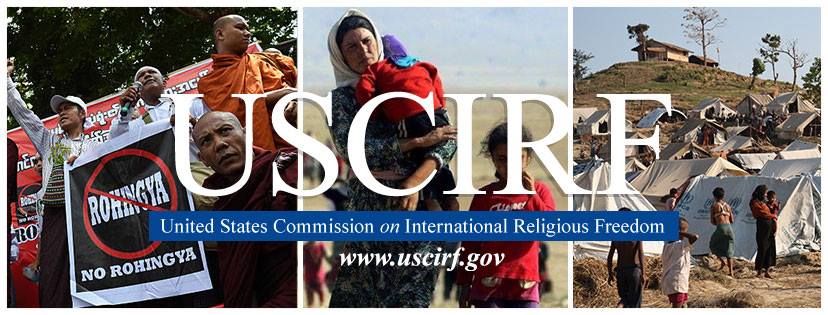Three million Uighur Muslims are estimated to be detained in Chinese concentration camps. Thousands of Yazidis, Christians, and others live on the edge of extinction in their ancient homelands in Iraq and Syria after ISIS’s genocidal rampage against them. Prisoners of conscience around the world are incarcerated for their beliefs, actions, or peaceful advocacy in support of their faith. The U.S. must continue to, and even expand its work, in support of religious freedom worldwide. This is why it is so important that Congress reauthorize the United States Commission on International Religious Freedom (USCIRF.)
USCIRF is an independent, bipartisan U.S. federal government commission dedicated to defending the universal right to freedom of religion or belief abroad. Composed of expert Commissioners and a dedicated professional staff, USCIRF reviews the facts and circumstances of religious freedom violations and makes policy recommendations to the President, Secretary of State, and Congress. The Commission has played a vital role highlighting horrific abuses of religious freedom, helping to free religious prisoners of conscience, and supporting those around the world who suffer for their religion, beliefs, conscience, or peaceful actions in support of their faith. They incubated an international group of parliamentarians working on these efforts, fourteen prisoners of conscience championed by USCIRF have been released, and in the past year alone released 20 reports, more than any other year. This is in addition to a great deal of unity on the issues displayed by Commissioners from across the political spectrum.
For the Commission to continue its important mission, it soon must be reauthorized or it will be forced to close. We are grateful to Senators Durbin, Menendez, Risch, and Rubio who collaborated on a reauthorization measure and encourage them to craft a bill that can pass Congress and maintain bipartisan focus on freedom of religion and belief rights.
Much is at stake. Whatever one’s theology, religious freedom is vital to humanity, anchored in numerous international conventions, and a foreign policy priority of the U.S. as articulated in the International Religious Freedom Act of 1998 (IRFA). It is also a key factor in U.S foreign policy, as it helps enhance security, peace, and economic development. Religious freedom advocates, from every faith or none, work diligently to strengthen religious freedom as a core component in U.S. foreign policy. We do this across religious, party, and ideological lines because we understand that the United States has a powerful voice and an important role to play within the international community.
USCIRF’s important contributions to this cause include robust reporting products, advocacy for prisoners of conscience, resources such as prisoner lists, and timely recommendations. Civil society relies on these essential tools to advance this fundamental human right.
Recently the International Religious Freedom Roundtable sent a letter signed by 114 organizations and leaders working for freedom of religion or belief thanking and encouraging key senators on their reauthorization efforts. This letter, one of the most diverse ever delivered to the U.S. government on religious freedom, includes representatives of Atheists, Buddhists, Christians, Copts, Falun Gong, Humanists, Jews, Muslims, Scientologists, Seventh-Day Adventists, Yazidis, and others.
Our message is clear: we are grateful to the Senators and their staff who seek to reauthorize USCIRF. This issue always has received bipartisan support – and must remain that way. Indeed, the Senate passed IRFA, the bill that created the Commission by a 98-0 vote. The House passed IRFA by voice vote. The Frank R. Wolf Act, that expanded USCIRF’s remit, passed without opposition.
Bipartisan support is crucial as members of Congress exercise their proper oversight and authorization roles and seek to resolve differences on provisions. We are encouraged that Senators and their staff continue to work together on this legislation. In years past, Congress has proven their willingness to work diligently to protect international religious freedom. In fact, Senators Durbin, Menendez, and Rubio earned top scores on the latest International Religious Freedom Congressional Scorecard.
USCIRF is an essential component in helping the U.S. be a beacon for freedom. We encourage Congress to reauthorize USCIRF and send a signal that the United States is committed to defending religious freedom and human dignity around the world.
Nathan Wineinger, MPP
Director of Policy and Coalitions, 21Wilberforce, Co-Chair Congressional Working Group, IRF Roundtable
Matias Perrtula, MBA
Advocacy Director, International Christian Concern, Co-Chair Congressional Working Group, IRF Roundtable
Read the opinion editorial online here.

